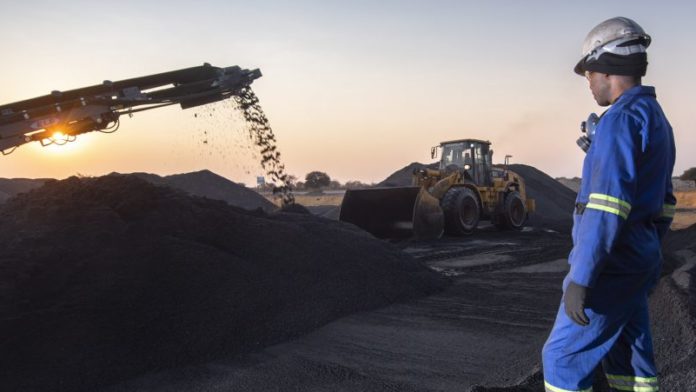
SERITI Resources cleverly wove a narrative following the conclusion of a coal sales agreement (CSA) with Eskom in which it said the South African power utility had scored a plenitude of benefits from the deal.
The CSA was mainstream news last month because Eskom was seen to be agreeing to a doubling in the cost of coal for its Duvha power station from South32, an Australian firm. South32 had earlier planned to sell the mine supplying Eskom to a black-controlled South African firm, Seriti Resources.
How, the question went, could Eskom and the National Treasury agree to an escalation of this type when the Zondo Commission was still picking through the state capture morass in which coal supply to the utility was a chief element of the alleged malfeasance?
Doug Gain, Seriti CFO, said during the announcement of Seriti’s purchase of South32’s 91% stake in South African Energy Coal (SAEC) that, in fact, the company had agreed to give up entitlement to the infrastructure – essentially a conveyor – from the mine (Ifalethu in Mpumalanga province) as part of the new CSA.
This meant Eskom would have free rein to convey to its Duvha thermal coal from any other supplier once the CSA had expired, which is in 2024. (The original CSA from Ifalethu to Eskom was intended to run a further 10 years, but South32 agreed to let it lapse early on the part settlement with the higher cost of coal).
On balance that looks a fair deal for Eskom, or as Gain put it: “Eskom did not waste the opportunity to improve its business prospects”.
The issue, though, is that power stations like Duvha were purpose-built next to the coal that would supply them because in the coal sector without competitive logistics there is no business case.
The problem for Eskom is that sourcing coal from other suppliers has been fraught with corruption. The suspension of a senior Eskom coal procurement manager on May 7 highlights the extent of the problem.
In many cases, Eskom is locked into CSAs with junior miners that make no economic sense partly because the supply is packaged with a corrupt transportation deal that renders the coal uncompetitive. It’s therefore questionable whether Eskom can source coal for Duvha that can compete with the higher Ifalethu cost of R550/t versus its original cost of R280/t.
The stories are that corruption is widespread in the coal transportation business. An industry source told Miningmx: “… the coal trucking lobby has legitimised itself very cleverly through transformation in communities. You have a company that wants to move coal – it shouldn’t have the opportunity to move that coal because it should be on a belt – but the contract goes to tender, and the company wins.
“That company has got to give 25% of the winning of the contract to the communities and so they fund trucks. And then before you know it, in about six months’ time, you’ve got 30 trucks running and you’ve got people who didn’t have jobs before”.
“This is the other side of the coin: people who didn’t have jobs now have a sustainable little businesses running trucks and doing coal and everyone is black, and often black female, and it’s all legitimised.”
Gain says that Seriti is giving serious thought to turning the firm’s New Largo coal project, bought from Anglo American for R850m, into an export mine. Originally scoped to exclusively supply Eskom’s Kusile power station, the installation is now so troubled with technical difficulties and supplied by an array of junior miners, that there’s no scope for New Largo to supply Kusile.
New Largo was late in being developed creating the window for Eskom to source alternative coal supplies. That’s Seriti’s problem, but it’s also South Africa’s problem because New Largo coal would have been conveyed and would have been the least expensive.











